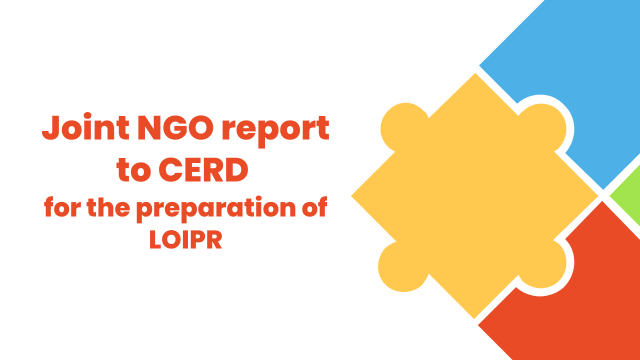Human rights and minority language education in the Asia Pacific region (FMI12, 2019, OS)
November 28, 2019
IMADR delivered the oral statement on “Human rights and minority language education in the Asia Pacific region” at the 12nd session of the Forum on Minority Issues. Whole text can be read below or download here. ![]()
———
Oral Statement: 12th session of the Forum on Minority Issues – Education, Language and the Human Rights of Minorities
28-29 November 2019
IMADR would like to congratulate the Special Rapporteur for the first Asia-Pacific Regional Forum, which emphasized the principle that the rights of linguistic minorities are human rights. The Forum in Bangkok also shed light on achievements and challenges unique to the region.
Minorities in Sri Lanka struggle with educational and linguistic barriers to equality. Despite the Constitutional recognition of Tamil as an official language by the 13th amendment, there is a lack of consistency in respecting that law, leaving Tamils and Muslims outside the North and East struggle to conduct business, receive public services and access to the justice system in the minority language. The full implementation of anti-discriminatory measures is urgent in Sri Lanka and elsewhere.
In Japan, Korean schools exist but are severely underfunded. The Government of Japan subsidizes the tuition of all public, private, and foreign high schools through the High School Tuition Support Program, with the sole exception of Korean schools. Graduates of Korean schools also are not automatically granted access to Japanese universities’ entrance examinations. Another issue in Japan is that the lack of opportunity to learn the indigenous Ainu language has caused a problematic decline of the language. The eradication of a language is a threat to human rights and a devastating loss of culture.
In Hong Kong, racial minorities have very limited choice in the public education system. Because there does not exist a Chinese as a Second Language curriculum, minority students are concentrated in less than 20 primary and secondary schools with either English as the medium of instruction, with little exposure to Cantonese teaching and learning, hence low Chinese proficiency; or they are scattered in mainstream schools, learning very simple Chinese or struggling in Chinese because they are taught the regular mainstream Chinese curriculum. They often find themselves unable to gain access to meaningful employment, whether or not they have higher education. The de facto segregation caused by two distinct education systems leads to severe inequities. Minority communities, for instance, overrepresent those in poverty in Hong Kong.
Those examples in the region illustrate education’s serious impacts on a wide range of human rights of linguistic minorities from civil and political rights to economic, social and cultural rights. States must implement measures to ensure access to quality education for linguistic minorities, while accepting the continued use of minority languages. We would like to ask the panellists if they can identify key measures needed for balancing the objective of preserving minority languages with the accessibility offered to minorities through learning a dominant language.





